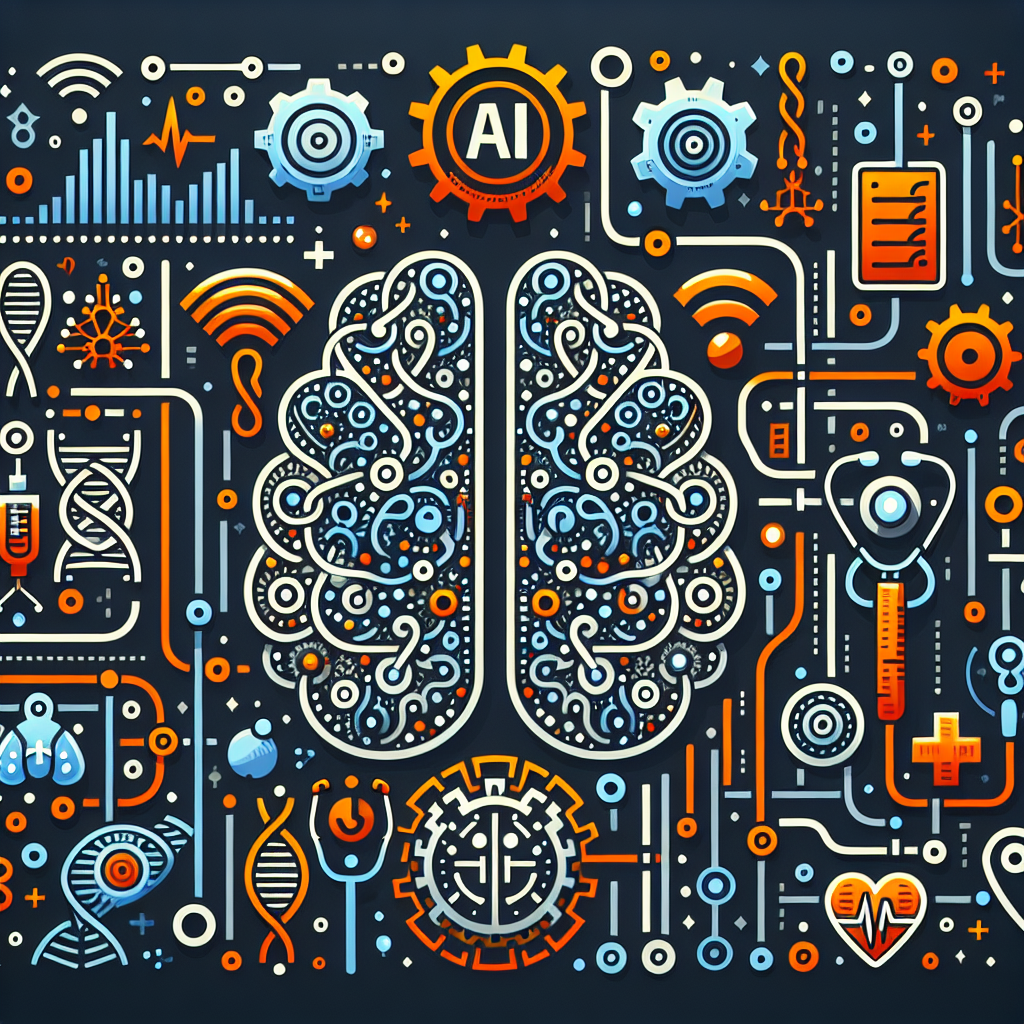The Impact of AI on Healthcare Data Analytics
In recent years, the healthcare industry has seen a rapid advancement in data analytics, largely due to the integration of artificial intelligence (AI) technologies. AI has the potential to revolutionize the way healthcare data is collected, analyzed, and used to improve patient care, streamline operations, and reduce costs. In this article, we will explore the impact of AI on healthcare data analytics and its implications for the future of healthcare.
AI in Healthcare Data Analytics
AI refers to the use of computer algorithms that can analyze and interpret complex data patterns to make predictions, recommendations, and decisions. In healthcare data analytics, AI algorithms can process vast amounts of data from various sources, such as electronic health records (EHRs), medical imaging, wearables, and genetic information, to provide valuable insights to healthcare providers.
One of the key advantages of AI in healthcare data analytics is its ability to detect patterns and trends in data that may not be immediately apparent to human analysts. For example, AI algorithms can identify subtle changes in a patient’s vital signs that may indicate the onset of a medical condition or predict the likelihood of a patient developing a particular disease based on their genetic profile.
AI can also help healthcare providers make more informed decisions by analyzing data from multiple sources to provide personalized treatment plans for patients. For example, AI algorithms can analyze a patient’s medical history, genetic information, and lifestyle factors to recommend the most effective treatment options for a particular condition.
Another important application of AI in healthcare data analytics is in medical imaging. AI algorithms can analyze images from medical scans, such as X-rays, MRIs, and CT scans, to detect abnormalities, such as tumors, fractures, or other conditions, with a high degree of accuracy. This can help radiologists and other healthcare providers make faster and more accurate diagnoses, leading to better patient outcomes.
AI can also improve the efficiency of healthcare operations by automating repetitive tasks, such as data entry, scheduling appointments, and billing. This can free up healthcare providers to focus on more complex and critical aspects of patient care, leading to improved efficiency and productivity in healthcare organizations.
Challenges and Opportunities
While AI has the potential to revolutionize healthcare data analytics, there are also challenges that need to be addressed to fully realize its benefits. One of the key challenges is the lack of standardized data formats and interoperability between different healthcare systems. AI algorithms require high-quality and standardized data to provide accurate insights, so healthcare organizations need to invest in data integration and quality improvement efforts to ensure the reliability of AI-powered analytics.
Another challenge is the ethical and regulatory considerations surrounding the use of AI in healthcare data analytics. Healthcare organizations need to ensure that AI algorithms are transparent, explainable, and unbiased to avoid potential ethical and legal issues. Additionally, healthcare providers need to ensure that patient data is protected and secure to maintain patient trust and compliance with data privacy regulations, such as the Health Insurance Portability and Accountability Act (HIPAA).
Despite these challenges, AI presents significant opportunities for healthcare data analytics to improve patient care, reduce costs, and enhance operational efficiency. By leveraging AI technologies, healthcare organizations can gain valuable insights from large volumes of data to make more informed decisions and deliver personalized care to patients.
FAQs
Q: How does AI impact healthcare data analytics?
A: AI can process vast amounts of healthcare data from various sources, such as electronic health records, medical imaging, and genetic information, to provide valuable insights to healthcare providers. AI algorithms can detect patterns and trends in data, make predictions, and recommend personalized treatment plans for patients.
Q: What are the advantages of using AI in healthcare data analytics?
A: Some of the key advantages of using AI in healthcare data analytics include improved accuracy and efficiency in diagnosing medical conditions, personalized treatment recommendations, and streamlined operations through automation of repetitive tasks.
Q: What are the challenges of using AI in healthcare data analytics?
A: Some of the key challenges of using AI in healthcare data analytics include the lack of standardized data formats and interoperability between healthcare systems, ethical and regulatory considerations, and data security and privacy concerns.
Q: How can healthcare organizations overcome the challenges of using AI in healthcare data analytics?
A: Healthcare organizations can overcome the challenges of using AI in healthcare data analytics by investing in data integration and quality improvement efforts, ensuring the transparency and explainability of AI algorithms, and implementing robust data security and privacy measures to protect patient data.
In conclusion, AI has the potential to revolutionize healthcare data analytics by providing valuable insights from vast amounts of data to improve patient care, reduce costs, and enhance operational efficiency. While there are challenges that need to be addressed, the opportunities presented by AI in healthcare data analytics are significant and can lead to transformative changes in the healthcare industry.

